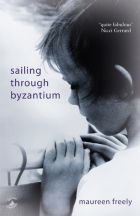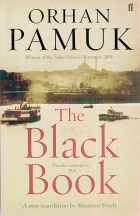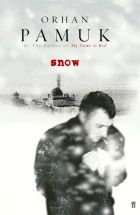Buy or gift a stand-alone digital subscription and get unlimited access to dozens of back issues for just £18.99 / $18.99 a year.
Please register at www.exacteditions.com/digital/cornucopia with your subscriber account number or contact subscriptions@cornucopia.net
Buy a digital subscription Go to the Digital EditionSelected poems translated by Ruth Christie, Richard McKane and Talât Sait Halman
In the polite world of Western letters, poems are meant to speak for themselves. The poet is only as interesting as his work: if he wishes to be taken seriously, his private and political passions must never eclipse his words. But that is just what Nâzım Hikmet did, with a vengeance and without apology, throughout his stormy life. His poetry was his politics. he sought not just to give voice to the downtrodden and the disenfranchised but to spur them on to revolution. To draw any distinction between his life and his work would be fatuous: it was the poety he wrote as a young Communist in the twenties that lead the authorities to see him as a dangerous subversive. It was seventeen years in Turkish prisons that made him the poet laureate of the left. It was in prison that he wrote his finest poetry. Most of it was seasringly autobiographical and intensely lyrical. It spoke to the heart as well as the mind; that was why it was so powerful. It was his poetry as well as his politics that turned him into a political cause.
Maureen Freely is a lecturer, novelist and journalist and is well known for her translations of Orhan Pamuk’s writing.
Few cities have been served so faithfully by an artist as Istanbul was served, in its twilight years as a great imperial capital, by Fausto Zonaro. By Philip Mansel
Carrots once came in a broad palette of hues – from white, cream and yellow, through pink and deep red to purple and black – as well as variegated versions of them all. Black carrots from the east of Turkey were famed for their medicinal properties.
More cookery features
Turkey’s Kaçkar Mountains, a daunting extension of the Caucasus high above the Black Sea, are only for the intrepid. Ali Özgü Caneri and Kate Clow took advantage of the short trekking season to scale two of the saw-edged summits. Photographs by Kate Clow.
Exiled by Stalin in 1929, Trotsky went to live on the Princes Islands near Istanbul. For four years he fished, wrote and developed the doctrine of Trotskyism. Remarkable photographs from the David King Collection show a quiet, ordered existence. Norman Stone uncovers the plotting that lay behind it.
Turkey’s northeastern neighbour, Georgia, is a fairytale country with a hard edge, and its entrancing landscape of isolated hilltop cathedrals and medieval monasteries just demands to be explored. By Minn Hogg
Built as way-stations for Orthodox pilgrims on their way to the Holy Land or Mount Athos, the rooftop churches of Karaköy are a forgotten corner of the Motherland in the heart of Istanbul. By Owen Matthews. Photographs by Simon Wheeler
The Russian love affair with the Caucasus has been long and cruel, though the outside world knows little of the multitude of ethnic groups who for millennia have inhabited this remote strip of land the size of France.




Cornucopia works in partnership with the digital publishing platform Exact Editions to offer individual and institutional subscribers unlimited access to a searchable archive of fascinating back issues and every newly published issue. The digital edition of Cornucopia is available cross-platform on web, iOS and Android and offers a comprehensive search function, allowing the title’s cultural content to be delved into at the touch of a button.
Digital Subscription: £18.99 / $18.99 (1 year)
Subscribe now